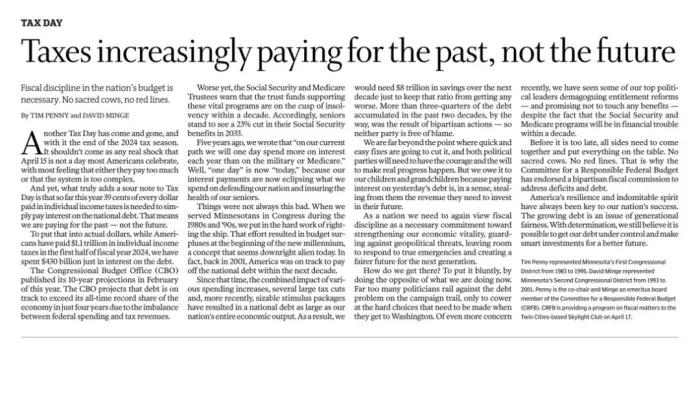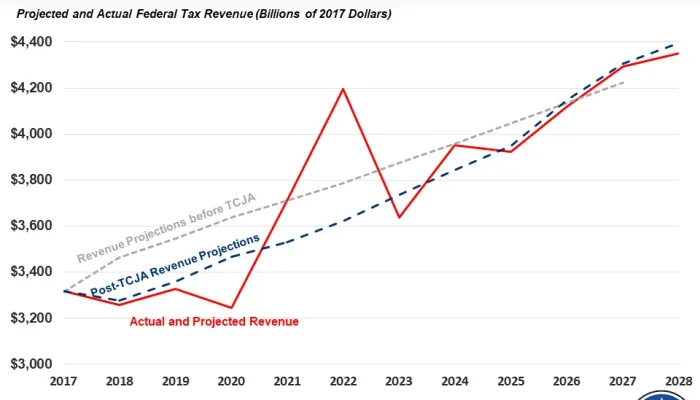Washington Post: "Lawmakers Should Offer Up a Fiscally Responsible 'Tax Extenders' Bill"
We couldn't have said it better ourselves! A Washington Post editorial today called on Congress to break with the trend of recent Congresses and actually pay for any extensions for expired and expiring tax provisions. The editorial argues that not doing so would be both irresponsible and hypocritical, given that the recent Bipartisan Budget Act was based on the understanding that increased spending from sequestration levels would be fully offset. Why wouldn't the same premise hold for the tax side of the budget?
CRFB has long said that Congress should fully offset the costs of any extensions to expiring provisions, either on the spending side of the budget (like the "doc fix") or on the tax side (like the extenders). Here are the key lines from the editorial:
Mr. Wyden, and his opposite number in the House, Ways and Means Chairman Dave Camp (R-Mich.), will face pressure to pass an unpaid-for bill, with the excuse that all tax breaks must be dealt with in a grand bargain on tax reform. That’s a fiscally irresponsible cop-out — and a hypocritical one, too, given that the House-Senate budget deal was premised on offsetting relief from sequester spending cuts. Even if it’s unlikely the tax-writers could get an agreement to eliminate or pay for the entire package, they could target the most expensive, least-efficient breaks.
A good candidate is bonus depreciation, which lets businesses deduct the cost of capital equipment in the year of its purchase, rather than more gradually. This provision accounts for nearly one-tenth of the bill’s cost, according to the Committee for a Responsible Federal Budget.
If lawmakers are unwilling to pay for any extensions, then they should allow the provisions to end.


